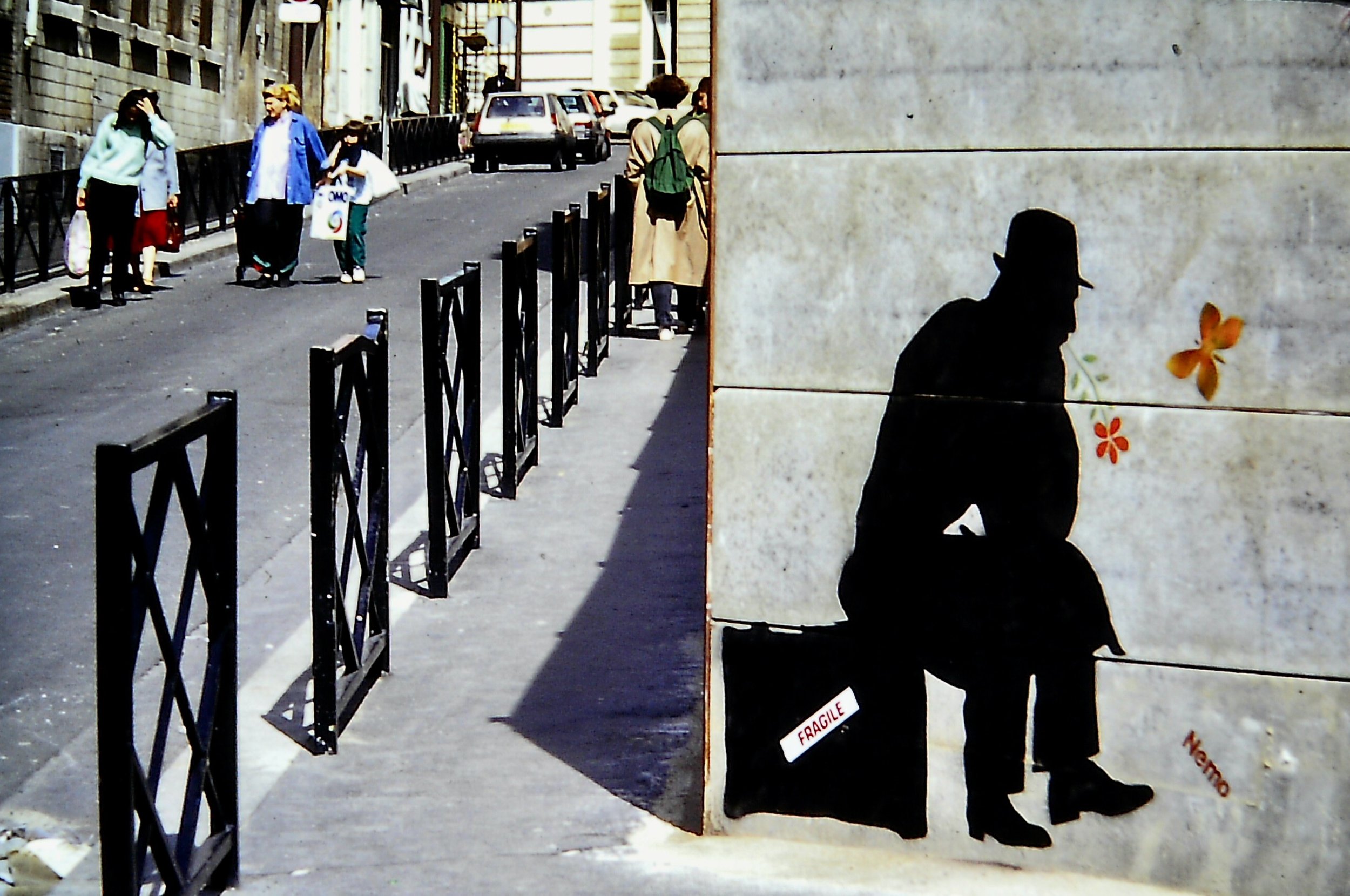Creative Memorization workshop
facilitated by James Navé
Monday, February 17, 2025
3-6 pm PT / 4-7 pm MT / 5–8 pm CT / 6–9 pm ET
$97 - Limited to 15 participants
Forget perfection—Memorization is about connection—a gateway to emotional depth and intellectual resilience.
In this three-hour Creative Memorization workshop, you’ll experience the power of memorization as a creative discipline. Building on centuries-old traditions and personal practice, you’ll learn how memorization deepens your connection to language, strengthens your imaginative intelligence, and opens surprising new avenues of creativity.
Why join this workshop?
Memorization is more than retaining words—it’s about awakening new dimensions of creativity and expression. In this hands-on workshop, you’ll discover how memorizing a single line can open a gateway to deeper emotional resonance and storytelling power. You’ll connect with the timeless human practice of committing words to heart, which builds intellectual resilience and inspires creative freedom.
Memorizing poetry is easier and more fun than you might think! You can’t force a garden to grow, and you can’t force a poem to take root in your heart. But if you cultivate it with love, it will become part of you.
What You’ll Gain
Deeper Creative Flow: Learn how memorization becomes a wellspring for your writing, speaking, and artistic endeavors.
Enhanced Connection to Language: Experience how living with memorized words enriches your storytelling and expression.
Confidence in Your Voice: Transform performance anxiety into a tool for dynamic self-expression.
Practical Techniques: Leave with strategies you can incorporate into your daily life, from visualization to embodied repetition.
Emotional Insight: Tap into the emotional depth that memorized work brings, creating personal and creative breakthroughs.
Step away from the digital rush and into a profound practice that invites clarity, focus, and imaginative intelligence. Whether you’re a writer, performer, educator, or simply curious about the creative possibilities of memory, this workshop will offer you tools to elevate your craft and deepen your engagement with language.
Join us for this transformative session and experience how memorization can ignite your creative spark, word by word.
Creative Memorization workshop
facilitated by James Navé
Monday, February `17, 2025
3-6 pm PT / 4-7 pm MT / 5–8 pm CT / 6–9 pm ET
$97 - Limited to 15 participants
Memorization as a Full-Bodied Experience,
an essay by James Navé
When you memorize a poem, it's more than just taking in words and holding onto them. Memorization is a full-body experience, like walking through the woods, swimming in a beautiful lake, or strolling with someone in the park. It's not just the physical sensations: the touch of trees, the cool water, or the conversation. It's the entire experience of being there. Similarly, when you memorize a poem, you immerse yourself in its rhythm, its ideas, and the relationship between its meaning and your existing narrative.
Memorization is like breathing. You take in oxygen, which permeates your body and fuels your system. In the same way, memorization enters your entire being, embedding itself into your mind and body. Instead, it becomes an act of absorbing, feeling, and embodying.
When I teach a memorization workshop, I tell folks that the best way to memorize is not to memorize. This is my way of saying we're not going to follow the traditional approach of sitting down with the text in front of you and trying to memorize it word by word, start to finish.
Years ago, I co-founded Poetry Alive!, which sent teams of poets into schools and onto stages nationwide, performing poetry as theater. I memorized over 600 poems and quickly realized that memorizing a poem line by line, word by word, and trying to get it perfectly right was a creative drag. I slowly learned to trust that the words would eventually align as I absorbed the poem into my psychology. Accuracy comes naturally over time, while the poem's rhythm, meaning, and flow become part of me long before I master every word. This shift has made memorization not only easier but also more meaningful.
Now that memorization is a pleasure, not work, I can take my time with a poem. The process needn't be about speed or perfection. It's about creating a relationship with the piece, allowing it to live within you. As you repeat the words, their meaning evolves, and the poem becomes part of your narrative.
The first step is to choose what to memorize. Whatever poem you choose, make sure you're drawn to it like to a new friend or lover. After all, you'll spend a fair amount of time in this relationship. Once you delight in a piece of writing, memorization becomes exciting, mysterious, and intellectually stimulating—and fun.
Back in the days of Poetry Alive!—a company I co-founded, which sent teams of poets into schools nationwide to perform classic poems as theater—I memorized T. S. Eliot's “The Hollow Men.” The poem depicts two soldiers, young men in their twenties, haunted by their experiences in World War I. The horrors of war have left them hollow, disconnected from their identities, and searching for meaning. We often performed it as a team piece: two of us representing the two hollow men.
As with all the poems I memorized, the meaning of “The Hollow Men” deepened as I memorized it. I connected with the soldiers' plight, imagining what it felt like to be hollow. I've never been a soldier, so I had to imagine war. If you've ever been in a war, you'll certainly have a more visceral sense of what being hollow means once the war ends. Yet the universality of its themes—emptiness, longing, and the desire for fullness—speaks to everyone.
Memorizing “The Hollow Men” allowed me to explore what it means to be hollow and, ultimately, what it means to be full. By understanding the hollow men's emptiness, I came to appreciate the fullness of life—engagement with joy, love, dreams, and community.
When you allow yourself to go deep into the memorization process, your desire for fullness will hold for all the pieces you memorize.
Memorization, like poetry itself, is an art of connection. It invites you to fully inhabit the words, letting them resonate through your body and mind. Whether you're memorizing The Hollow Men or another poem, the process is an opportunity to explore the work and yourself. By engaging deeply with memorization, you'll discover the complete joy it holds as a practice of creativity, understanding, and self-discovery—which will last you a lifetime.


